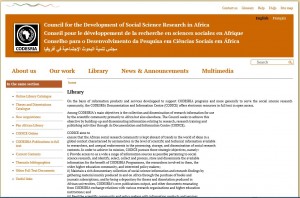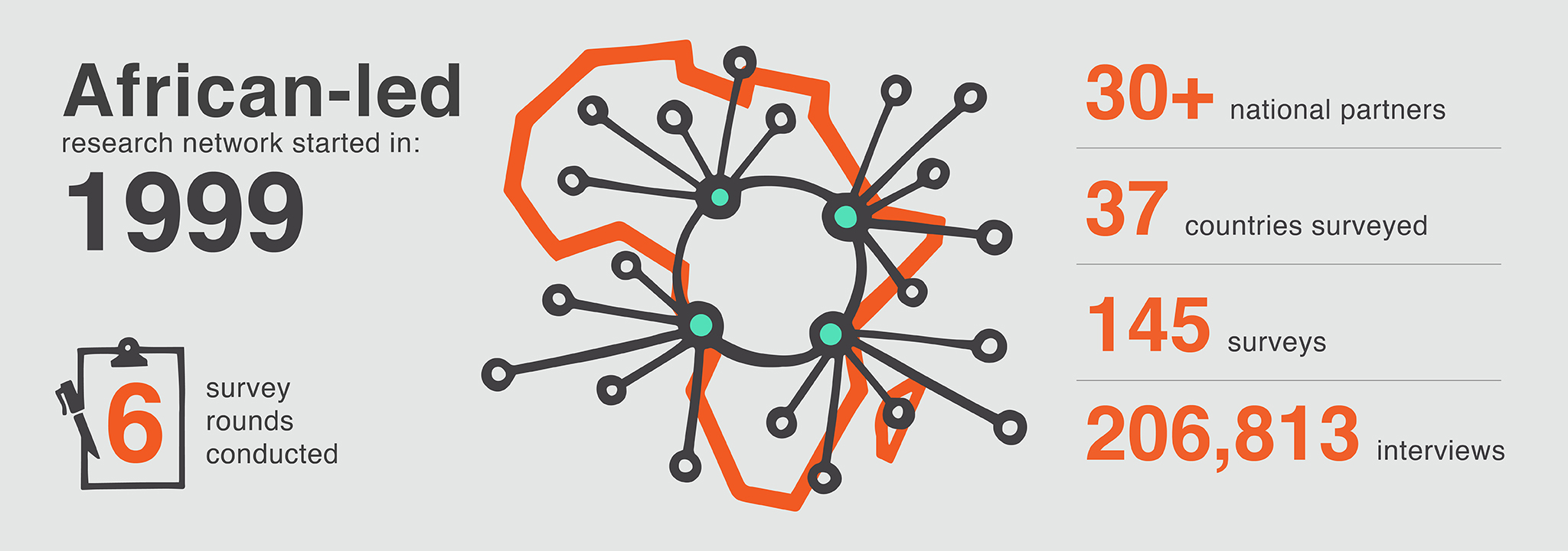Research Tools
Library
On the basis of information products and services developped to support CODESRIA programs and more generally to serve the social science research community, the CODESRIA Documentation and Information Centre (CODICE) offers electronic resources in full text in open access.
The Pan African Library offers a bilingual (English and French) collection of research documents produced by scholars around the globe, with the majority of studies based on data gathered in urban and rural setting on the continent.
The African Population and Health Research Center (APHRC) has won the 2015 United Nations Population Award. The award, established in 1981, is given annually to individuals and institutions for exceptional work and achievement in the fields of population and health. Thoraya Ahmed Obaid, a former Executive Director of UNFPA, also won the award.
Previous laureates of the prize include outstanding demographers, family planning associations, researchers, policymakers, grass-roots organizations, development agencies and national leaders from all over the world.
APHRC is a leading pan-African research institution headquartered in Nairobi, Kenya, that conducts high quality policy-relevant research on population, health, education, urbanization and related development issues across Africa. APHRC actively engages policymakers and other key stakeholders to achieve measurable policy impacts and ensure decision making across the continent is informed by rigorous evidence.
Over the last decade, APHRC has contributed to a better Africa through quality research, and results-based strategic communications and policy engagement.
The Award Committee which made the selections is chaired by the Czech Ambassador to the United Nations, Edita Hrdá. Other members include Bangladesh, Cote d’Ivoire, Denmark, Grenada, Jamaica, Qatar, Tanzania, Nigeria and Pakistan. UN Secretary-General Ban Ki-moon and UNFPA Executive Director Dr. Babatunde Osotimehin are ex-officio members of the committee.
International Organization for Migration
IOM provides a world migration map showing where people are migrating from and to. It also provides in-depth background and statistical information on mass migrations around the world.
IOM General Information
Established in 1951, IOM is the leading inter-governmental organization in the field of migration and works closely with governmental, intergovernmental and non-governmental partners.
With 162 member states, a further 9 states holding observer status and offices in over 100 countries, IOM is dedicated to promoting humane and orderly migration for the benefit of all. It does so by providing services and advice to governments and migrants.
IOM works to help ensure the orderly and humane management of migration, to promote international cooperation on migration issues, to assist in the search for practical solutions to migration problems and to provide humanitarian assistance to migrants in need, including refugees and internally displaced people.
The IOM Constitution recognizes the link between migration and economic, social and cultural development, as well as to the right of freedom of movement.
IOM works in the four broad areas of migration management:
- Migration and development
- Facilitating migration
- Regulating migration
- Forced migration.
IOM activities that cut across these areas include the promotion of international migration law, policy debate and guidance, protection of migrants’ rights, migration health and the gender dimension of migration.
Urban Data goes open with launch of new portal
 Nairobi, 20 April 2015 – UN-Habitat has launched a new web portal featuring a wealth of city data based on its extensive research into some of the most pressing urban trends of recent decades.
Nairobi, 20 April 2015 – UN-Habitat has launched a new web portal featuring a wealth of city data based on its extensive research into some of the most pressing urban trends of recent decades.
Launched during the 25th Governing Council, Urban Data allows users to explore data from a number of cities and regions around the world and compare indicators such as slum prevalence and city prosperity. For the first time, the data is also available for use under an open licence agreement.
The state of the art site was created by developers Zimmerman and Zimmerman who provide smart data visualisation software solutions to organisations in the development aid arena, in partnership with open data solution providers Akvo. They specialise in making data more accessible, helping development partners to become more transparent and accountable through open data publication.
It was funded by the Swedish International Development Coorperation (Sida) who are world leaders in open data and strongly support the international transparency movement.
The urban indicators data available are analyzed, compiled and published by UN-Habitat’s Global Urban Observatory which supports governments, local authorities and civil society organizations to develop urban indicators, data and statistics.
An interactive view of our urban world
The statistics are collected through household surveys and censuses conducted by national statistics authorities and analysis is carried out by some of the world’s leading urbanists and is featured in UN-Habitat’s flagship reports like State of the World’s Cities and the Global Report on Human Settlements.
In addition, visitors to the site can use an online interactive tool to generate basic infographics that can be saved and downloaded for use in their own work or research.
For more traditional number crunching, the original data tables can also be downloaded in straightforward database format.
The aim of the site is to give casual users a simple, quick and interactive view of urban data while also allowing academics to manipulate UN-Habitat’s rich data bank to enhance stories or new research.
![]() Find the Urban Data Portal here
Find the Urban Data Portal here




